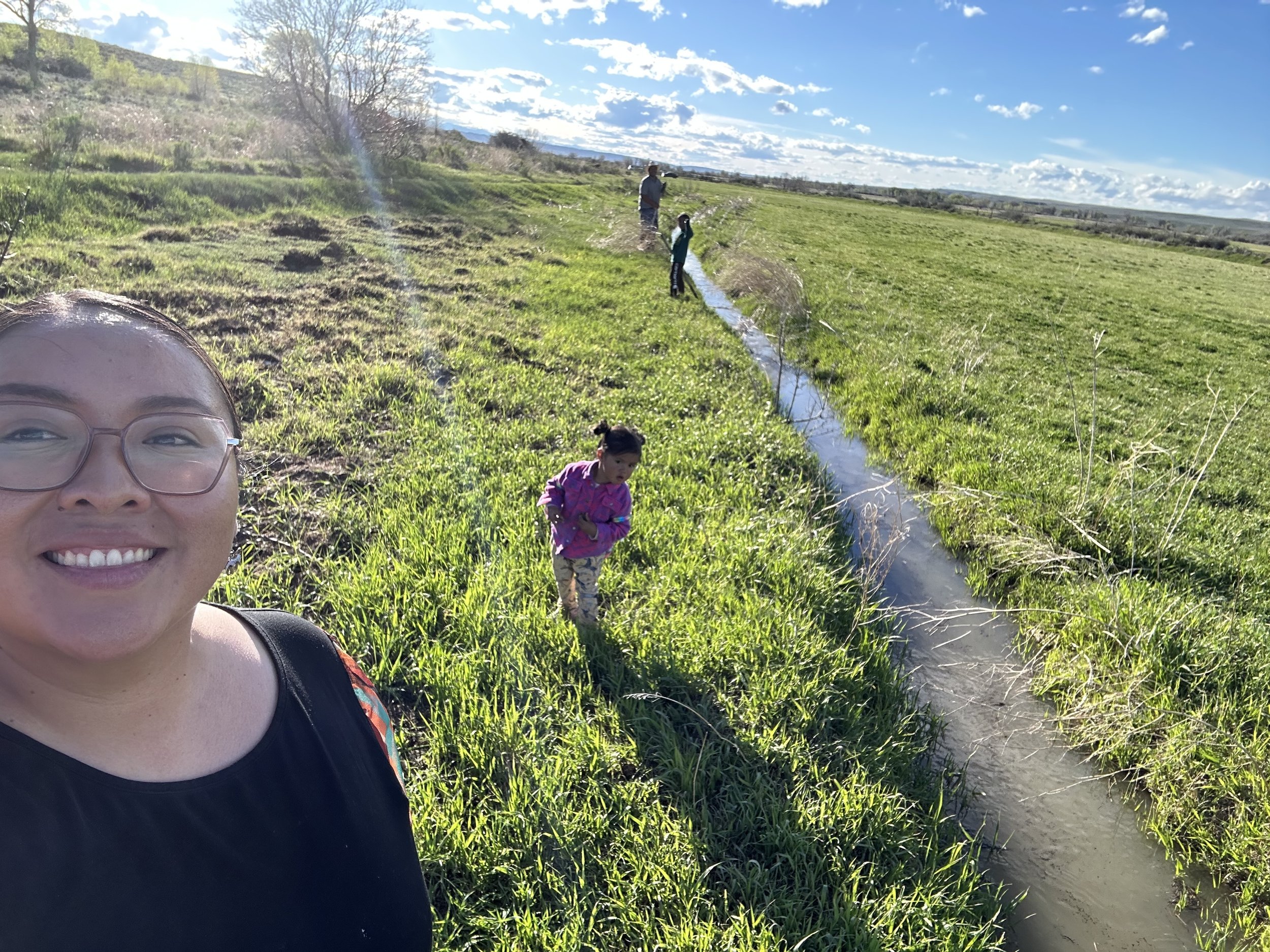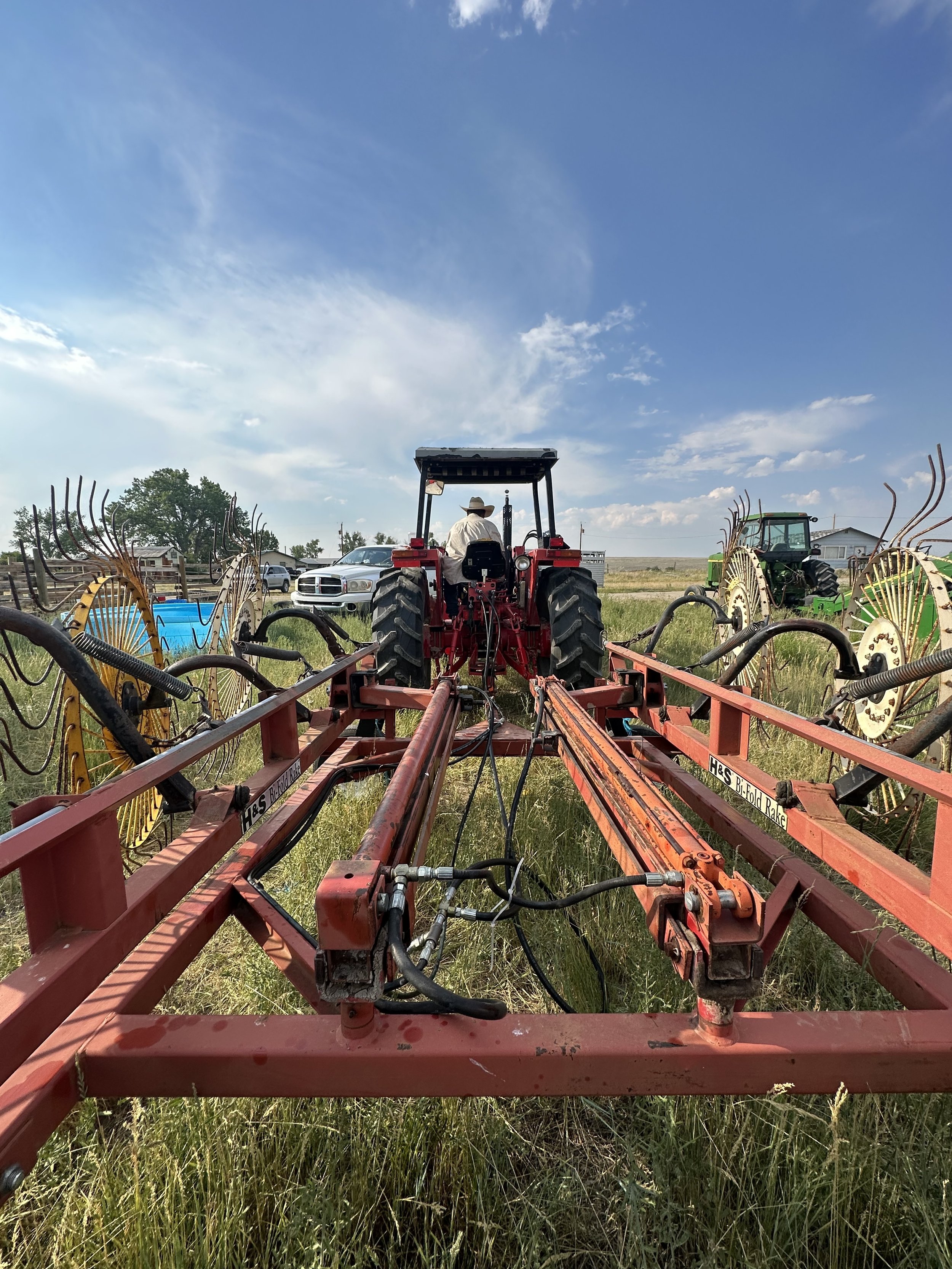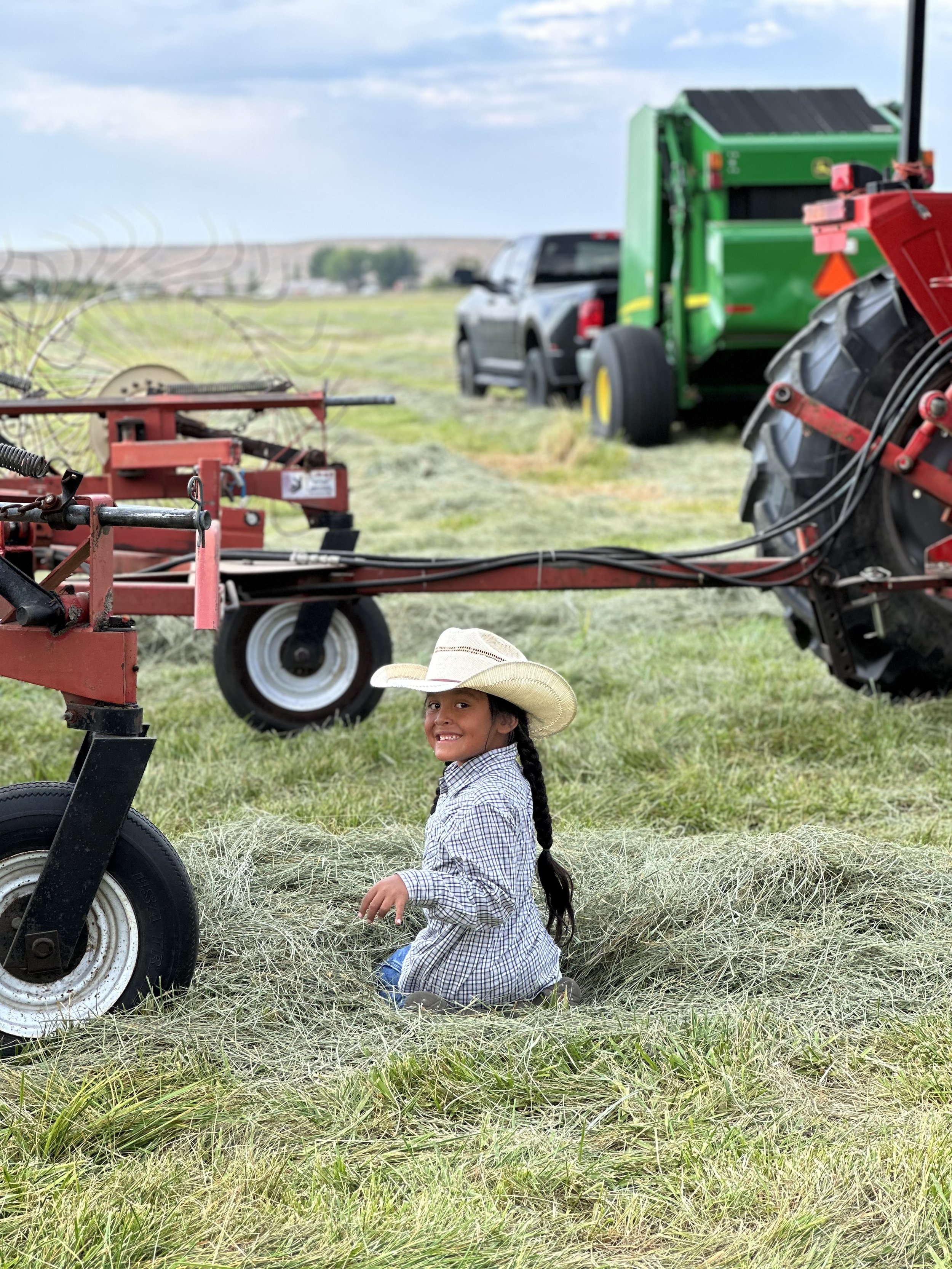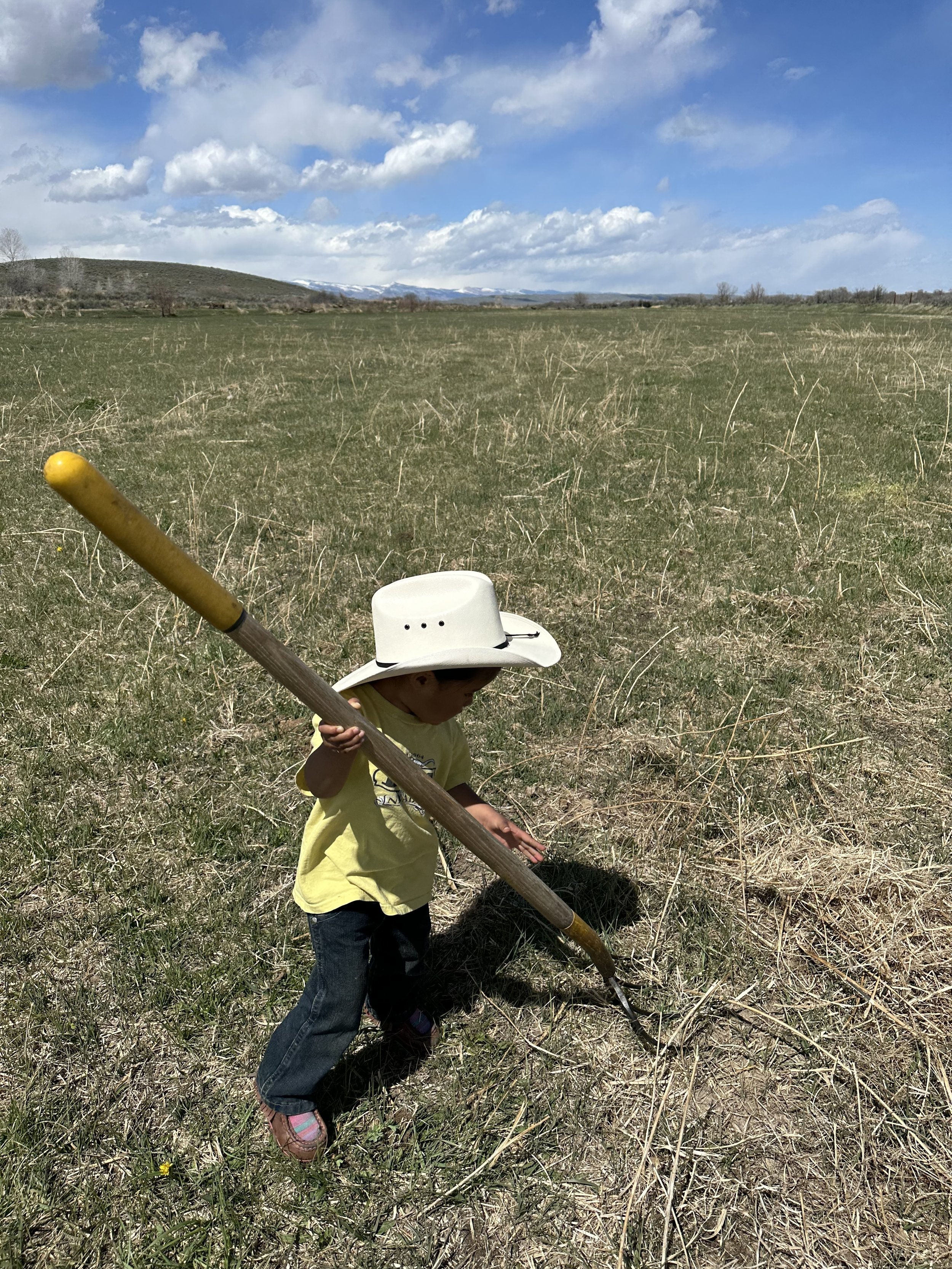
Taking Risks, Dreaming Big, and Navigating Life’s Twists:
Mikala SunRhodes-Harry Balances Ranching, Family and Community Care.
Written by Sophie Tsairis
March 15th, 2025
Mikala SunRhodes-Harry embodies multiple identities - mother, spouse, Arapaho, Jemez Pueblo member, first-generation rancher, and community builder. Her collection of responsibilities continues to expand.
Born to Northern Arapaho and Jemez Pueblo parents, Mikala resides in Ethete, Wyoming on the Wind River Indian Reservation with her family, surrounded by her Arapaho community. Her dual heritage gave her an early understanding that agriculture transcended occupation.
"I never knew it specifically as ag," she reflects on her formative years in New Mexico, where her Pueblo family lived according to harvest cycles. "It was just what we did."
For the Jemos Pueblo people, culture centers around harvesting - everything from produce to mountain game to livestock care. "Whatever it is, it ties back to who we are as Pueblo people," SunRhodes-Harry said.
Her path changed when she met her husband, Craig Harry, in 2017. "It was kind of a culture shock —he was the first 'real cowboy' I'd interacted with. He worked from sun-up to sundown, and we only saw each other on weekends."
Today, they're creating their own agricultural legacy on the Wind River Range, but the road to where they are now has been winding and at times with challenges and turbulence. Within a few years, they've assembled farmland, pasture, and rangeland, building their operation from the ground up. Despite challenges, Mikala finds purpose in raising her children and fostering community in the place of her childhood.
Initially, the couple dreamed of cattle ranching but faced significant hurdles with FSA loans and Wyoming's operating costs. While expecting their first child, they relocated to her husband's sixth-generation family ranch in Nevada, starting with just two cows.
"We went for it," Mikala said. "We essentially started with two cows, got the FSA loan, and were able to purchase about 100-head. We slowly started growing the operation, building corrals and laying everything out – we grew to about 130-head."
While teaching at Head Start, her husband traveled frequently for work. Their operation expanded to include extensive rangeland. "We had it made," she recalls.
During her second pregnancy, with their FSA loan nearly paid off, Mikala revisited her ‘end game’ of returning to Wyoming.
"I sat down one day and thought, if we don't move back to Wyoming now and start the process of getting leases through the BIA, I don't think it will ever happen. I thought about how I grew up—deeply involved in my community and the Arapaho culture and who was I to take that away from my kids. Who am I to not raise them the way I was raised with that culture, language, and community."
She adds, "Something in me, in my heart, didn't want to take that away from my kids; I wanted to be able to raise them traditionally."
In 2022, they made the difficult decision to start over, moving from Nevada back to Wyoming. "I did a lot of questioning around what I was doing and if I made the right decision," said Mikala.
“We have tribal land, but we still needed approval from the government to use it,” she explained. After several years of navigating bureaucracy and securing land leases, the family now manages 780-acres of farm, pasture, and rangeland. They recently purchased their first 40 pairs and are looking for another 20.
Beyond ranching, Mikala serves as a benefit coordinator at the tribal health clinic, organizes the local pee-wee rodeo, and sits on the pow wow committee - each role strengthening the community fabric she's creating for future generations.
"What drives me is making a better future for my kids and the youth here on the reservation," she says. "If I'm not going to do it, who is?"
Her vision extends beyond leaving her children land, cattle, and horses. She wants to pass down something more precious: their language, traditions, and a deep connection to community. As her own children develop their work ethic alongside their cultural identity, Mikala sees her dream taking shape—a legacy built on perseverance and possibility.
"Stay true to who you are," she reflects on her journey. "That's gotten me really far in my life."





Did you enjoy this piece?
Subscribe to our monthly digest to read more guest writer stories
